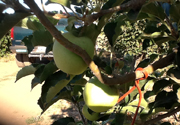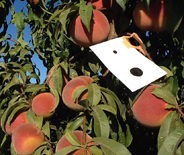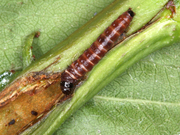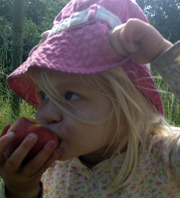THIS WEEK’S FRUIT
Red Top Peaches
The big, bold Red Top lives up to its name and is almost fully blushed red over yellow. One of the first freestone varieties of the season, its flesh is consistently firm and sweet. With its unique coloration and ease of slicing, the Red Top is especially well-suited for presentation.
Goldensweet Apricots
The Golden Sweet is a smaller apricot that makes up for whatever it lacks in size with its rich flavor. Though we may bake pastries featuring other varieties, the Golden Sweet is our variety of choice for our best-selling apricot conserve. Another California born and bred variety, it has a brilliant golden orange skin with a soft blush.
Santa Rosa Plums
Famed California horticulturist Luther Burbank bred this plum in his Santa Rosa plant research center. Red-skinned with a purple bloom, its amber flesh gets flushed with red. It’s plump perfection with tender flesh that’s extremely sweet and juicy. A bit of tartness in the skin balances out the sweetness.
Emaraude Nectarines
Sugar-sweet and alluring, the Emeraude nectarines feature fuschia skin over juicy white flesh.
Tomato Variety Preview
Our tomato harvest will begin sometime in late July or Early August. Tomatoes previewed here will be available as Add-Ons for your boxes at harvest time.
Winsall Tomato
The Winsall has been around since 1924 and originated from Horticulturist and Market Gardener Peter Henderson’s Henderson Seed Company. Winsall are large, typically one pound per tomato and have a pretty pink skin. They are sweet, tangy, and juicy. Winsall are a great slicing or salad tomato.
A Note From Farmer Al
At 6:30 am this Friday morning, 18 men, the Tree Team, fanned out into pear and apple orchards each with a bundle of twist ties in his hand. Row by row, they tie each 8” twist tie to a branch, 2 per tree. These twist ties are not paper and wire, but a soft pliable plastic-like material which is infused with the sex pheromones of female codling moth. They last for 90 days, constantly emitting sex pheromones, flooding the orchard with false signals and thus making it impossible for the male to zero in on a mate…no sex, means no worms in our pears and none in our apples.
Several members who came out to the Day in the Orchard inquired as to what the white tags were hanging in the trees. The white tags or tickets are FHF’s preventative defense against the peach twig borer, a major pest of all stone fruit. Our tickets are artificially infused with the female pheromones of the peach twig borer.
Pheromone confusion is an amazing scientific development that is protecting our fruit from worms but, the true value of this miracle of modern science is that it is literally saving our earth’s environment from the devastating and often unforeseen and hidden effects of hundreds of millions of pounds of lethal and toxic chemicals which were formerly applied in humans’ attempt to keep worms out of our fruit.
We also use other strategies to protect the fruit from worms: sprays of bacillus thuringiensis (BT) and beneficial insects.
BT is a bacteria which when eaten by worm of the OFM (Oriental Fruit Moth), PTB (Peach Twig Borer) or Codling Moth will make it sick and die. The bacterium is sprayed onto the fruit and when the worm bites into the fruit it ingests the bacteria and dies very quickly. The single, miniscule bite from the worm cannot be seen nor does it damage the fruit.
Beneficial insects, such as the parasitic wasps, trichogramma platneri also help control unwanted pests in the orchard. Too tiny to see with the naked eye, these deadly wasps find any eggs the PTB and OFM may have lain on a fruit; the female wasp oviposits her egg into their egg. The wasp egg hatches first and consumes the PTB/OFM egg.
And so it goes, the amazing cycle of life and death on the farm, hidden from the naked eye, but immensely powerful.
Organically yours,

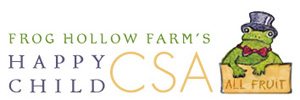
 Follow
Follow

